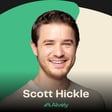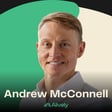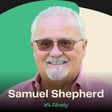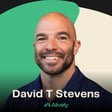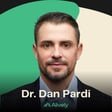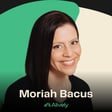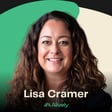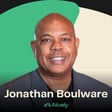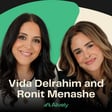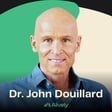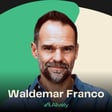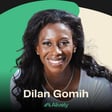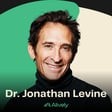
Live Longer And Better with Ryan Schneider - E37
Living longer and better requires a comprehensive approach to longevity that extends beyond mere lifespan to healthspan—the quality of those additional years.
The pursuit of relentless productivity often leaves little room for relationships, fun, and overall well-being. In this episode, we delve into an inspiring story about an entrepreneur-slash-dad who was burnt out and hyper-fixated on his career, but turned his entire life around when he decided to get fit and start taking better care of himself. We also cover cutting down on sugar, the need for balance when it comes to a fitness routine and why longevity is the key to a healthier, more fulfilling life.
Ryan Schneider, the founder and curator of Thrive25, transformed his personal quest for optimal health into a resource now celebrated by busy millions globally. After turning 40, welcoming his second child, and relocating, Ryan delved deep into the science of longevity, inspired by the works of Peter Attia and Andrew Huberman. Named after this transformative journey, Thrive25 turns complicated information about health and wellness into digestible insights for those seeking to maximise their vitality. The platform's success underscores Ryan's mission to empower others with personalized, concise, practical health guidance drawn from his collaborations with leading experts and continuous personal experimentation.
“It was the connections that [were] the determining factor on the quality of your life.” - Ryan Schneider
In this episode you will learn:
- Why life isn’t about achieving perfection and how it can impact your health and longevity.
- How shifting priorities and facing personal changes led Ryan to create the Thrive25 health optimization platform.
- The importance of integrating fun and relationships into your health journey to maximise your lifespan.
- Strategies on managing stress and cultivating a better mindset, including breathwork and the power of pausing.
- The profound effects of maintaining strong social connections and the role it plays in leading a fulfilling life.
- Insight into personalised nutrition and fitness strategies, with a focus on moderation and balanced routines.
Resources
- Connect with Thrive25 on Instagram:https://www.instagram.com/thrive25labs/
- Discover the Thrive25 platform: https://www.thrive25.com/
This podcast was produced by the team at Zapods Podcast Agency:
https://www.zapods.com
Find the products, practices, and routines discussed on the Alively website:
https://alively.com/

